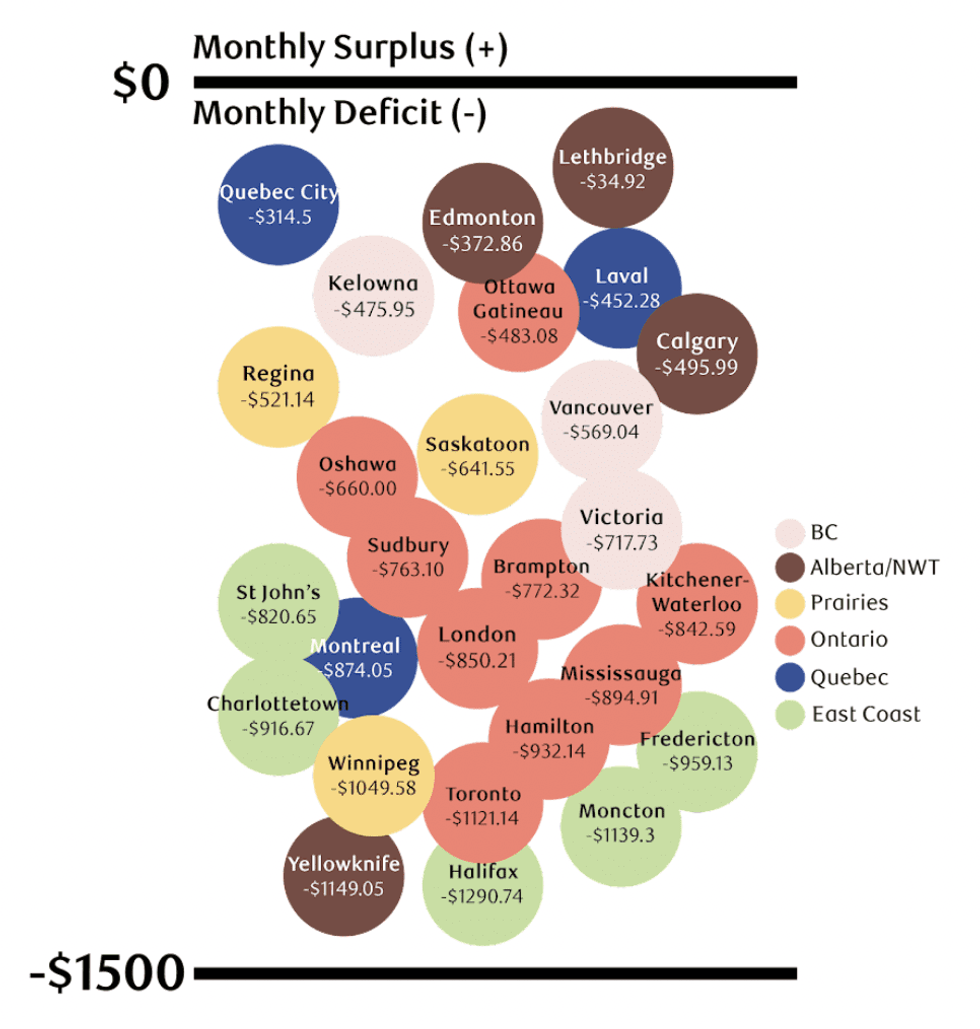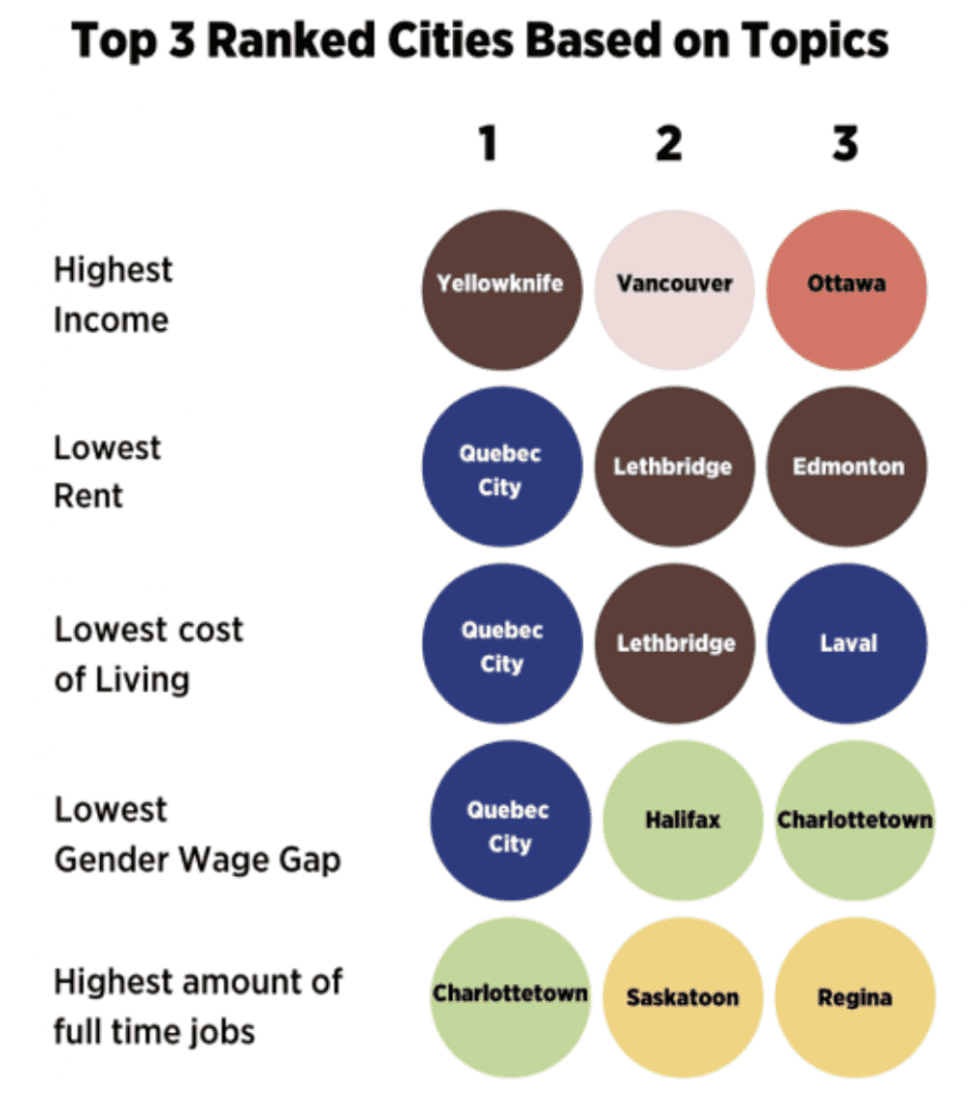The cost of living is continuing to rise across Canada, and young Canadians are increasingly finding out that living in a city, big and small, is no longer affordable, says a new report from RBC.
After analyzing affordability across 27 Canadian cities, RBC Future Launch's Real Affordability Index found that Canadians aged 15 to 29 years old can no longer afford any of the cities they live in. Not only was this demographic hardest hit by the pandemic, the report says, but they are now, on average, running a monthly deficit of $750.
"Young peoples' inability to afford to live in urban areas can have many compounding negative effects including increased mental health concerns as they face fears of missing out on life ahead and attaining their goals and aspirations," said Mark Beckles, RBC vice-president of social innovation and impact. "Through Indexes like this one, RBC Future Launch is raising awareness of the barriers facing young people and helping provide a platform for young people to voice their concerns so that we can listen."

Canada's eastern cities were found to be the least affordable, "primarily due to the east coast salary discount." Provinces like Alberta and Quebec, on the other hand, offered young people more opportunities to save money. But even the most affordable city analyzed -- Lethbridge, Alberta -- still had young Canadians averaging a monthly deficit of $32.92. It also has a significant gender affordability gap of 20%.

Unfortunately, gender pay inequity continues to be one of the drivers of unaffordability, with young men continuing to earn more than young women in every city indexed. This, coupled with the fact that salaries in general are not keeping pace with the cost of living in Canadian cities, is making city living more and more unrealistic for young Canadians. In fact, the report found that in every city indexed, minimum wage was not livable, with gaps ranging between $2 and $10. And even when young people are employed full-time, two-thirds of the indexed Canadian cities were still found to be unaffordable.
"Affordability shouldn't only be about the basic necessities for survival," says Claire Patterson of Youthful Cities, a think tank and RBC partner. "Affordability should also include the ability to pay for those things that contribute to the vibrancy of a person's life when they are able to move forward and meet those key milestones we view as signs of success. In today's Canadian cities opportunities to thrive simply aren't equally accessible to all young people."
This country-wide unaffordability, the report warns, could spur a "massive drain on critical youthful talent now and into the future."
"Today's young people are still working to afford the toast," Patterson said. "Avocados seem a long way off."





















